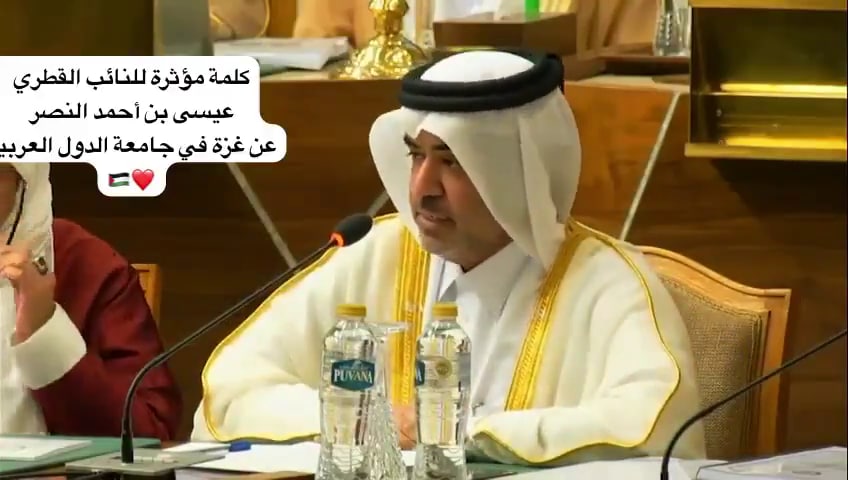
Tehran University Professor and retired IRGC General Hossein Alaei said in an interview that was posted to the Iranian website ecoiran.com on March 22, 2022 that Russia should not serve as a mediator between the U.S. and Iran in the nuclear talks. He explained that Russia is untrustworthy and that it stands to lose from the nuclear agreement since it would enable Iran to take some of Russia's share in the oil and natural gas market in Europe, particularly now that Russia is facing economic sanctions because of the Ukraine crisis. Rather, he said that Iran should talk directly with the United States and sign a deal without Russian, Chinese, or European mediation.
Hossein Alaei: "Iran is one of the countries that has the potential to supply gas to Europe. I do not mean that Iran can do this now. You need to prepare the infrastructure, to install the pipelines, and to resolve all the technical issues. In addition, Iran needs to increase its natural gas production. All this is true. Still, this is doable.
"In fact, one of the ways to guarantee Iran's security in the long term is to become a major player in Europe's energy market. After all, Iran is not a threat to Europe, and the Europeans have never posed a threat to Iran either.



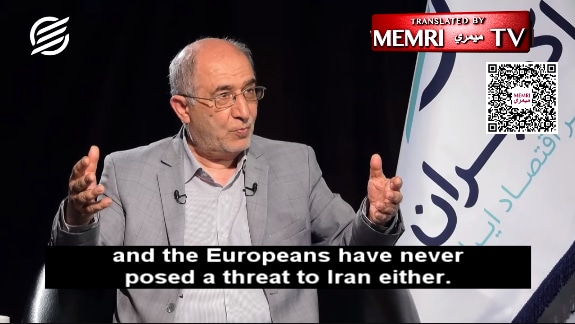
[...]
"If the JCPOA [is signed], it will benefit Iran as well. Considering Iran's current economy situation, this would constitute immediate and great help for the government. The Americans would also [benefit from this]. They can use this to control the market. But to whose detriment would this be? The first to lose would be the Israelis.


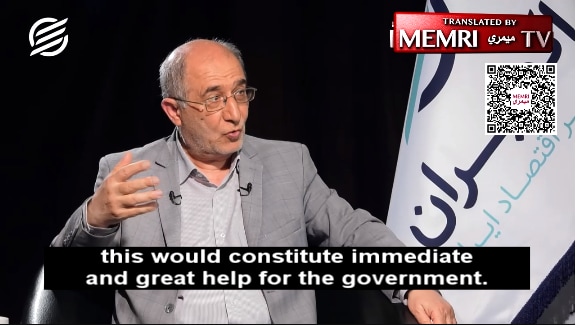


[...]
"So the Israelis are against this. Who else opposes [the JCPOA]? The Russians. Why do the Russians oppose it? They are now under the pressure of sanctions. If fewer countries are boycotted, this would be to the Russians' detriment. At least in the field of energy - like oil and gas - the Russian's are Iran's rivals rather than partners. Anywhere Iranian oil and gas go, they come at the expense of the Russian share of the market.
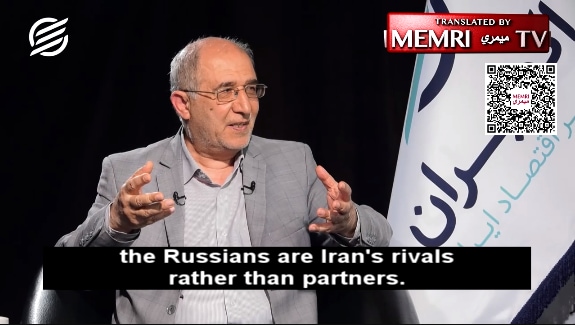

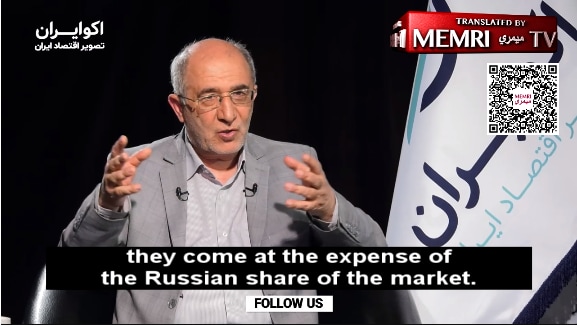
"The Russian market is not separate from that of Iran. This is why the Russians have never wanted Iran to increase its energy export capacity. Why? Because one of Iran's important markets is Europe.
[...]
"In many fields, we have a rivalry with the Russians. This is why you could see that on the various nuclear issues, the Russians have always opposed Iran's nuclear activity. From A to Z. In the days of MR. Ahamdinejad, when most [UNSC] resolutions against Iran were made, the Russians always voted against Iran in the Security Council, and at least two resolutions against Iran's nuclear program were drafted by the Russians and submitted to the Security Council.
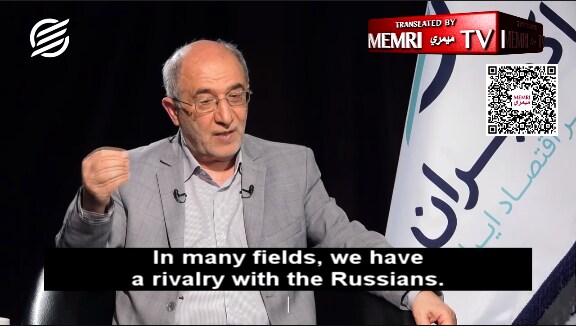


"They do not believe that the Iranian nuclear program should develop technically independent from Russia. You could see that with regard to the enrichment issue - even with regard to the Bushehr power plant - the Russians said to the Americans during the JCPOA negotiations: Do not allow Iran to enrich [uranium], because we want to provide their nuclear fuel.
[...]
"The Russians believe that as much as Iran needs Russia, it is in their favor - just like the Americans, who tell us that we must not work with the Russians.
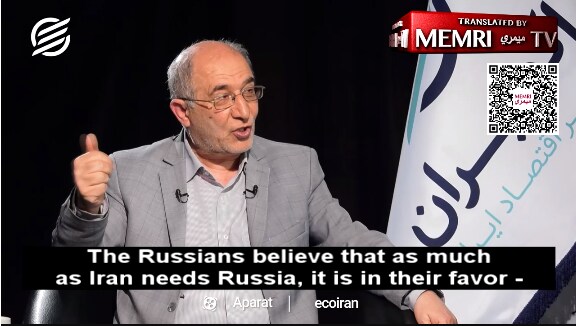

[...]
"In the current circumstances, with the Russians deep in the quagmire of the Ukraine war... The Americans threw this banana peel under their feet, and they did not see it coming. The Russians walked into a quagmire from which they will not get out easily. Under these circumstances, it is possible that they are even considering to drag Iran into this quagmire and take it down with them.



"This is the best time for Iran to end Russia's mediation in the JCPOA talks. Who are those Russians anyway? Why do they always position themselves between us and the Americans? Are the Russians more reliable in talking to the Americans than we are? We are the ones who should talk to the Americans.
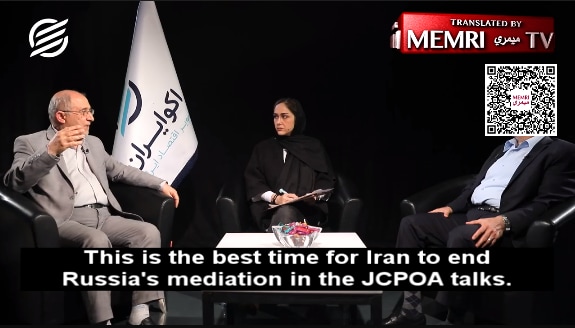


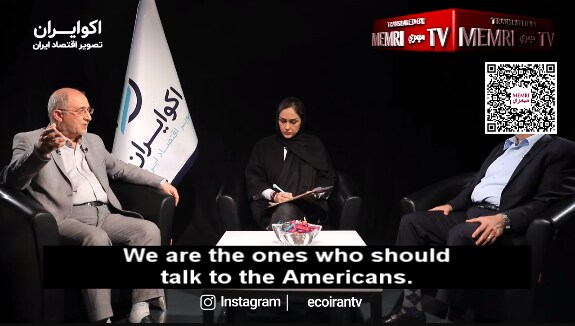
"Why did we choose a mediator that we have known as a traitor throughout history? We have never trusted the Russians and they have betrayed Iran throughout history. Now those Russians with their record... During Saddam's war with Iran, the [Russian-made Scud] missiles rained on the Iranians' heads.

"Now we make them mediators so they can negotiate with the Americans on our behalf? Are we handicapped? We should negotiate directly. It is much better than turning a country like Russia into a mediator, and let it talk [to the Americans] without even sharing the same language. You tell them something and they need to translate it, then it is unclear what they are saying [to the Americans], and on top of that, they ask for a broker's fee.


"The same is true for the Europeans. We must not turn the European troika into mediators either. They also want a broker's fee.
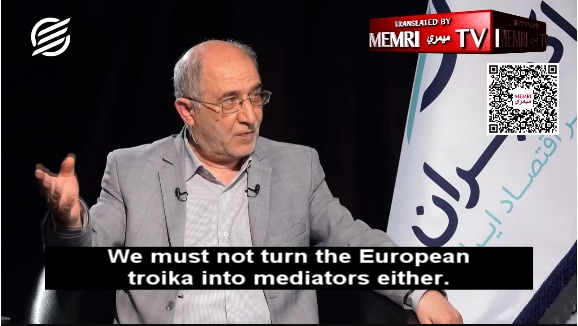
[...]
"The nuclear dispute is between America and us. The fact that the Russians, the Europeans, and the Chinese were brought in — in my opinion this was a mistaken policy right from the get-go. Now they have become players with whom we need to reach agreements, in order to eventually reach an agreement with the Americans. This was not the issue to begin with.

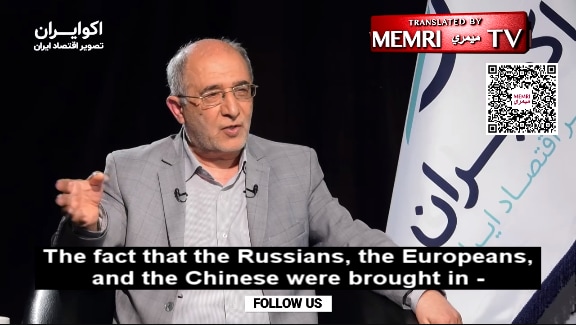
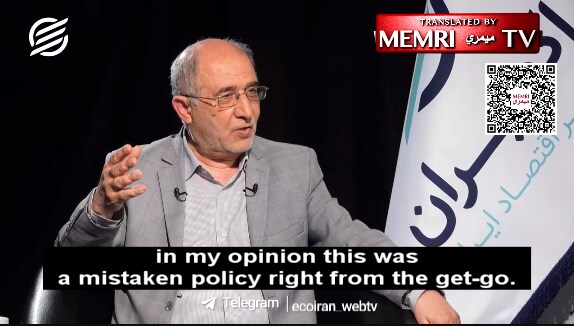
"The Iranians and the Americans need to sit together and reach an agreement on the [various] issues. We have punished America enough for Trump leaving the JCPOA. We said then that we would not talk to them. Never mind. Now that we want to close the deal, we need to sit with the main counterpart, so that we can resolve all the issues - not with the Russians whose actions are unclear.




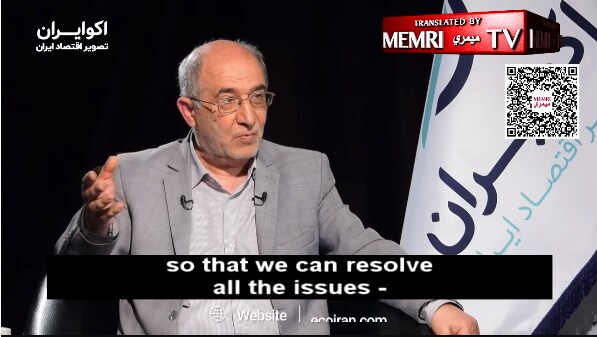

"We saw during the JCPOA negotiations how the Russians made sure that their mediation would continue for a long time. They said, for example, that the enriched material would be transferred to Russia, the centrifuges would also be transferred to Russia, and so on. Why would we do such a thing? Why have we involved Russia in everything, giving it a good reputation, and a bargaining chip which they use vis-à-vis the Americans?
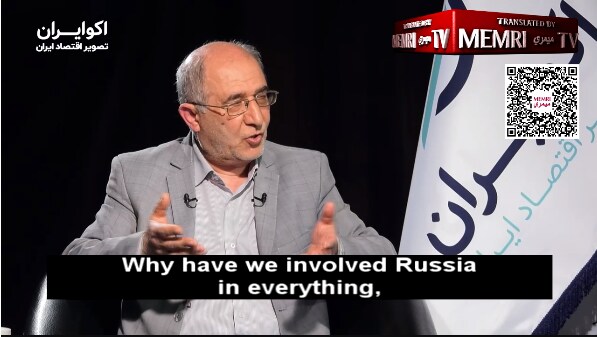
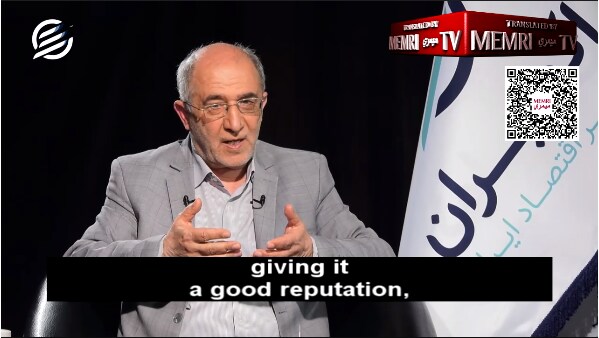
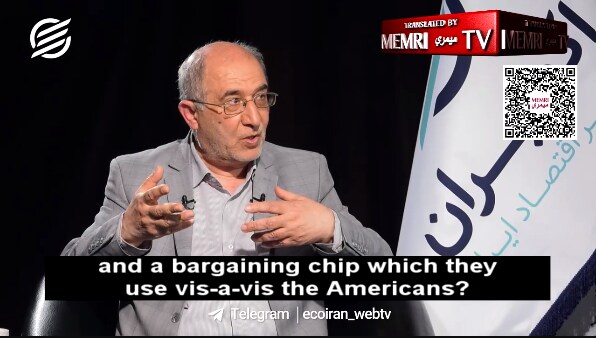
"We have no need for all this."












